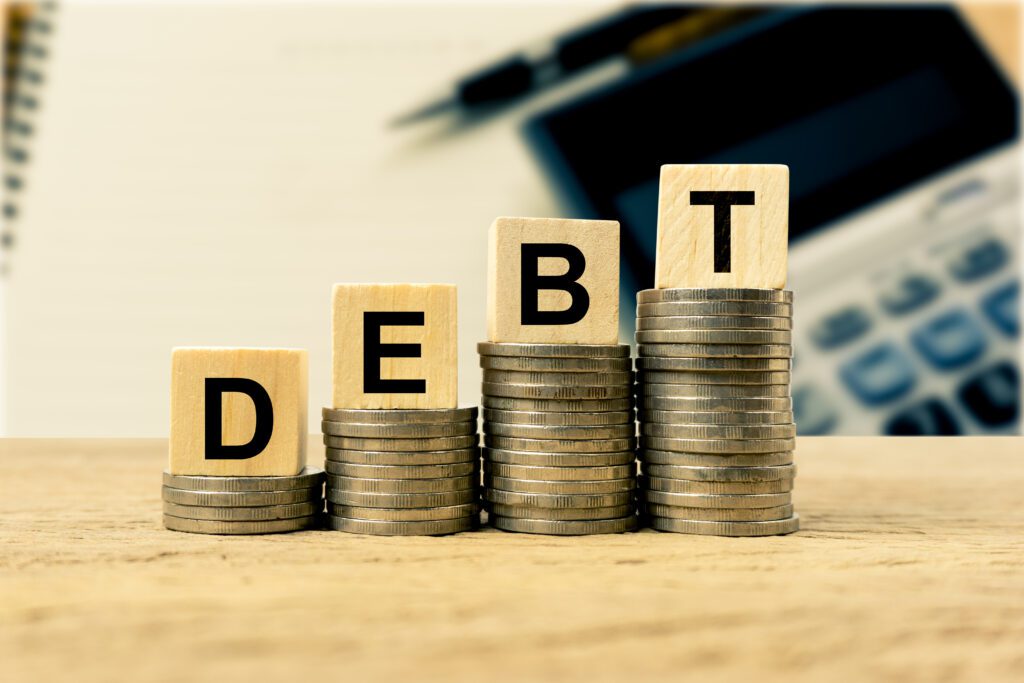Advertiser Disclosure: Many of the companies featured here provide compensation to us. This is how we maintain our free service for consumers. Compensation, along with hours of in-depth editorial research, determines where & how companies appear below.
In most cases, creditors and debt collectors are more than willing to settle for a percentage of the original debt amount. They’d rather settle for a reduced lump sum payment than lose the entire amount.
debt settlement is not a simple matter.
There may be times when you are faced with a debt collector who doesn’t want to let you off the hook, and that is why they will call you incessantly and try to get you to pay up. Each call makes your heart drop, but you are probably unsure of what you can do to stop it.
It is likely that you are experiencing great stress as a result of your credit problems. Credit problems can cause anxiety and depression, so you must take action to stop the calls and eliminate the issue. You can either pay off the bill, set up a payment arrangement, or try to negotiate a settlement with the creditor.
When Should You Pay Off A Bill?

It is best to pay off a debt in collections as soon as possible to avoid future unwelcome calls from your creditor. You may also see some improvement in your credit score if you do this.
The creditor will report the account as paid in full to the credit reporting agencies and you will no longer have to worry about it. People who have some savings or enough disposable income should pay off their bills.
Nevertheless, it is not always possible to repay a debt, especially if your income is limited or you do not have a large savings account.
Reach A Payment Agreement To Settle Your Debt
Your creditor or debt collector will come to an agreement with you to make monthly payments on the debt so that you can get back on track financially. Despite the fact that you will not be free from debt, your lender will be unable to pursue a debt lawsuit against you provided you follow the payment terms.
As you make monthly payments, you can save money toward a complete payment of the debt. If you have additional income available, you may also increase your monthly payment amount.
The faster you pay off a debt under a payment agreement, the faster your creditor will report the debt to the credit bureaus as fully satisfied.
How You Can Settle Your Debt

It may be possible to negotiate a debt settlement with your creditor or debt collector if you have sufficient savings. A debt settlement allows you to pay less than the total balance you owe, known as a reduced lump sum payment, and releases you from further obligations.
The creditor or debt collector will be more likely to accept a settlement if they believe you are unlikely to repay the debt in full. In most cases, if the account has gone into collections and you have stopped making regular payments, they will consider a settlement.
Debt settlement companies can assist you in contacting your creditors or debt collectors to settle your debt. By negotiating a settlement offer with the creditor or collector, these companies assist you in resolving your debt. Generally, consumers who use a debt settlement company reach a debt settlement of 50% of the amount owed.
Nonetheless, there are some debt settlement companies that are not all they claim to be. As a matter of fact, several states have passed debt settlement laws to prevent debt settlement companies from taking advantage of consumers who are already in debt. Further, debt settlement companies charge up to 25% of the total debt as a fee for their services.
Consider making your own settlement offer if you wish to settle your debt. It may seem intimidating to deal with creditors and collectors.
You Can Negotiate Your Debt Settlement On Your Own
A debt settlement offer of 60% or more of the debt’s value will likely attract your creditor’s attention. Here is an example of a debt settlement offer message:
“I, [your full name], am offering you a lump-sum payment of $___ to settle my account with account number ___. You can accept or counteroffer. If you accept, respond to this email with only “Accept.” If you want to counter, respond with your counteroffer amount.” Please do not contact me in any other way than by responding to this message. This offer expires in 6 days on MM/DD/YY. I will pay the agreed amount within 90 days of the settlement date.”
When you have sent your initial offer to your creditor, you should sit back and wait for him or her to consider it.
In response to your creditor’s counteroffer, you should carefully consider it and decide what you are able to pay. If their counteroffer exceeds your income, let them know and explain your circumstances. If lenders are aware that you are facing a difficult situation, such as losing a job, they may be more lenient.
For example, Brad has been sued for an old credit card debt by a debt collector. In response to the lawsuit, Brad filed an answer to it and offered a debt settlement offer to the collectors. He offered to pay a lump sum of 50% of the debt. After the collector responded with a counteroffer of 90%, Brad reached a debt settlement of 70% of the debt. Brad saved himself some money and was much happier with his financial future when he reached a debt settlement of 70%.
Make Sure The Debt Settlement Agreement Is In Writing

If you reach an agreement, make sure it is written down before you arrange for your payment to be transferred. Even if you have tried to resolve the debt with an honest effort, sometimes debt collectors will use nefarious tactics to try and get more money from you. When you have a written contract, you are protected if they try to collect the remaining balance of your debt from you.
As soon as you have absolved yourself from the debt, you need to adopt better financial habits. If you are having difficulty managing your finances, credit counseling may be able to help. Credit counseling can explain the basics of lending and set up a budget that allows you to make smarter financial choices.

